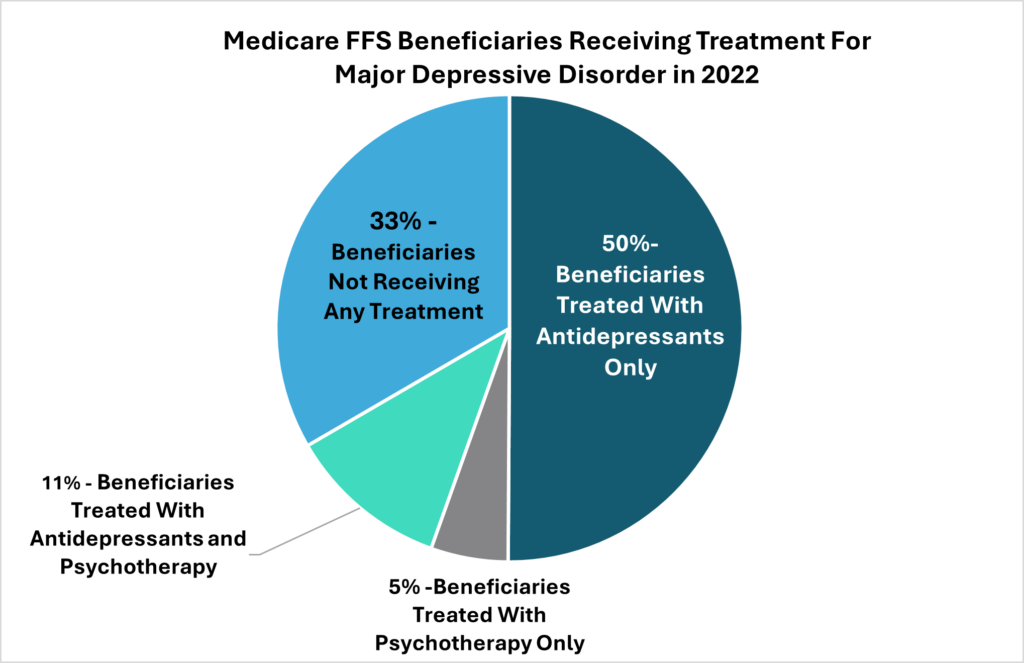Insights,
Insights,
According to an article from Gallup Panel, Major Depressive Disorder (MDD) is one of the most common mental disorders in the United States. In 2023, the percentage of US adults reporting a lifetime diagnosis of depression has reached 29 percent, nearly 10 percentage points higher than in 2015.*
ADVI Health’s Strategic Analytics, Value and Economics (SAVEs) team wanted to better understand the prevalence of MMD among Medicare beneficiaries and the proportion of patients receiving treatment. The team’s findings identified 4,680,865 Medicare FFS beneficiaries with MDD using the Chronic Condition Data Warehouse (CCW). When analyzing Parts A, B, and D claims to assess MDD treatment patterns, the team found that 67 percent of these beneficiaries were receiving care via antidepressants or psychotherapy, while nearly 33 percent were not receiving any Medicare-covered treatment.
Treatment rates varied significantly in 2022, with 80 percent of low-income subsidy (LIS) beneficiaries receiving care for MDD compared to 62 percent of non-LIS beneficiaries. Black beneficiaries were the least likely to receive treatment, with only 40 percent in care and 39 percent using antidepressants, though they had the highest psychotherapy utilization at 8 percent. Conversely, White and Hispanic beneficiaries were more likely to receive treatment, both at 51 percent, with the same rate of antidepressant use. Notably, White beneficiaries constituted 87 percent of the MDD population.

Get in touch to learn more about how we can help you evaluate unmet needs with the treatment of MDD for Medicare beneficiaries.


Head of SAVEs